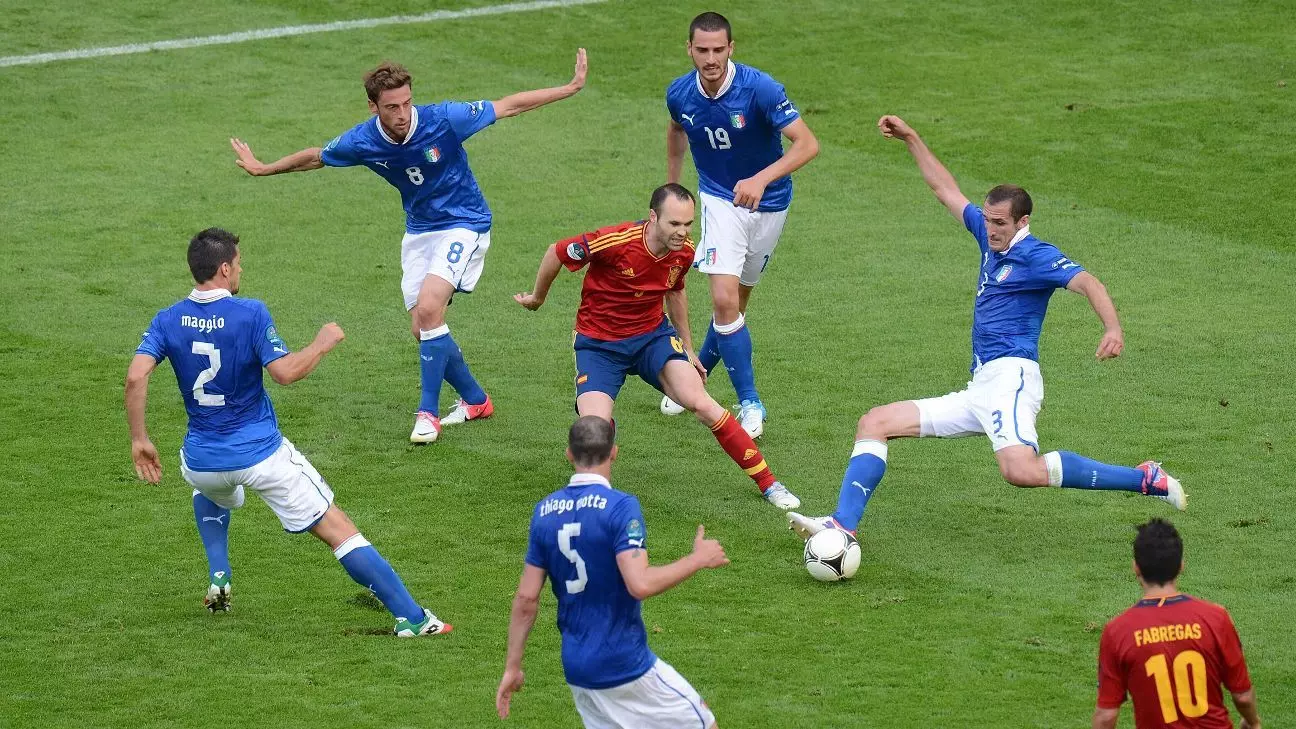Andrés Iniesta’s decision to retire from professional football marks the end of an era for fans of the beautiful game. Having turned 40 in May and with a staggering record of over 1,000 appearances and 38 major trophies to his name, Iniesta has left an indelible mark in the annals of football history. From orchestrating play for Barcelona to dazzling on the international stage with Spain, his contributions cannot be overstated. Iniesta wasn’t just a participant; he was a creator, a leader, and a symbol of footballing ingenuity.
A Career Defined by Greatness
The acclaim surrounding Iniesta underscores his unique talents. His former coach Luis Enrique’s comparison of him to Harry Potter speaks volumes about the magic he brought onto the pitch. He garnered respect from contemporaries like Xavi Hernández, who considers him the greatest Spanish player of all time, and from football icons like Pep Guardiola, who stated that Iniesta elevated his understanding of the sport. Yet, what does it mean when your name is mentioned in the same breath as Lionel Messi and Cristiano Ronaldo? It signifies a level of consistency and brilliance that most players can only dream of achieving.
Iniesta’s trophy cabinet features elite accolades, including a FIFA World Cup, two UEFA European Championships, and four UEFA Champions League titles. His success wasn’t only due to his skill; it was also a testament to his ability to perform under pressure during crucial moments. For instance, who could forget the 116th-minute strike that clinched Spain’s first World Cup in 2010? Such moments were not merely incidents; they were watershed moments that changed the course of national history.
Every great player’s career includes iconic milestones, and Iniesta’s is no different. Early in his journey, he showcased talent that was impossible to ignore during youth competitions, such as the 1996 Brunete Championship, where he was awarded MVP. It was here that FC Barcelona recognized potential and signed him shortly after, allowing him to blossom into the footballing phenomenon he later became.
His pivotal goal against Chelsea in the 2009 Champions League semi-final remains etched in memory, catalyzing Barcelona’s march towards glory that season. The aftermath of this goal had unexpected societal implications as well, triggering a baby boom in Catalonia. Nicknamed the “Iniestazo,” this match serves as a reminder of how sports can unify and invigorate communities. In an era where individual brilliance often overshadows teamwork, Iniesta’s story is a timely reminder of the collective spirit of football.
Beyond the accolades and highlights, Andrés Iniesta embodies sportsmanship and respect. His heartfelt tribute to his friend Dani Jarque after scoring in the 2010 World Cup Final reveals a man grounded in humility. The T-shirt revealing his late friend’s name underscored that greatness goes beyond mere talent; it reflects the character of the individual. Iniesta’s sincere demeanor and sportsmanlike conduct connect him with fans and opponents alike, transcending the typical rivalries present in football.
Moreover, Iniesta’s accolades are bolstered by visual representations of his deft skills on the pitch. The instance where he effortlessly glided past four opponents against Paris Saint-Germain illustrates his innate ability to shift the dynamics of a game. In a world often dominated by physicality, Iniesta carved his niche through finesse and intelligence—qualities that will endure as his legacy.
The culmination of Iniesta’s illustrious career came in 2018 when he marked his farewell from Barcelona with an impressive display in the Copa del Rey final. He served as the heartbeat of the team, delivering a masterclass that belied his nearing retirement age. As he walked off the pitch with tears in his eyes, the outpouring of appreciation from fans and fellow players underscored the profound impact he had made in his two-decade tenure at the club.
Iniesta perfected “La Croqueta,” a move that became synonymous with his style. This simple yet effective technique exemplified his exceptional ability to create space and evade defenders—a skill that even seasoned opponents could not neutralize. Messi’s remark about the perpetual challenge of dispossessing Iniesta is emblematic of his magical presence on the pitch.
It is evident that Andrés Iniesta was not just a football player but a true artist in how he approached the game. His retirement allows us to reflect not only on his numerous contributions to football but also on the larger-than-life persona that captivated millions. He stands as an exemplar of excellence, a symbol of what it means to strive for greatness while remaining grounded in humanity. As he hangs up his boots, the world is left with memories of the midfield maestro, a legacy that will reverberate through generations of football enthusiasts.

